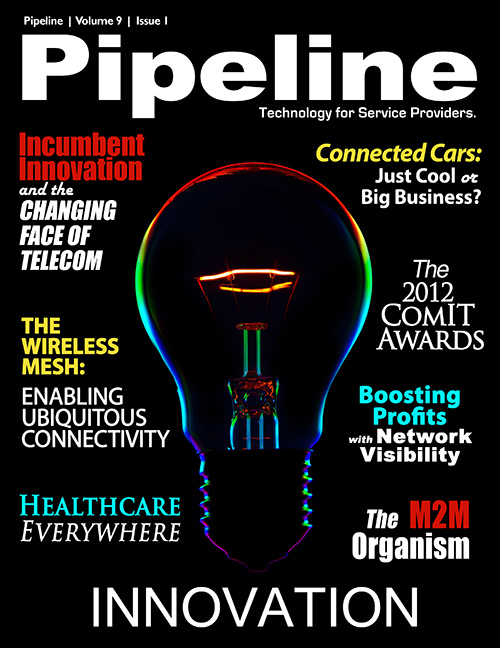Newswatch
Last month, TM Forum's Management World took place in Dublin for the last time (next year the event returns to Nice, France), and although the weather was amazing, attendance was a bit spotty. It could have more than a little to do with trade show scheduling this year; vendors, carriers, and the press had to split their time between the LTE World Summit in Barcelona, Management World in Dublin, and The Cable Show in Boston. All three events took place over the same week. Still, several major carriers didn't even have staff on the ground in Ireland to coordinate interviews, indicating their priorities were elsewhere.
While acronyms and buzzwords were certainly in attendance this year, there was a greater emphasis on transformation than in the past. It's easy to see why: although telcos are still very profitable businesses, they must change shape to compete in the new digital service economy. This concept isn't new—it's been discussed by analysts, vendors and the TM Forum for some time—but CSPs are now aware of the urgency of transforming as the horizon of sweeping change is now visible.
During keynotes Tuesday, Phil Jordan, Group CIO, Telefonica O2, said much of the criticism lobbed at the telecommunications industry is unfounded. “This is a fantastic industry, and IT is right at the future structure of the industry.” Ashish Gupta, CIO, BT Global, echoed similar enthusiasm for the future, adding, “We need to figure out how to mold what was a telco model into a service model.”
Phil Jordan summed up the direction the industry is moving, saying, “We increasingly want to, and have to, become aggregators of service experiences.”
Agility was another popular subject. To create, market, manage, and monetize new services at the speed of modern demand, CSPs must be able to move rapidly and with confidence. This need for speed affects everything in the industry, including provisioning, activation, billing, product catalog, customer support, infrastructure, analytics, and policy.
Part of the agility and transformation problem, historically, is that the IT component of telcos is tangled and disparate. This is particularly painful when the rising role of IT is considered. Albert Hitchcock, CIO, Vodafone, explained it this way: “As operators, we haven't been that disciplined in the IT space; lots of complexity, lots of legacy.”
One angle vendor companies are exploring is consolidation and centralization. Several vendors had solutions on display that addressed complexity concerns by reducing the number of physical and logical data repositories. Pipeline met with Amdocs to discuss OSS consolidation, and how they are helping customers reduce the number of OSS repositories and build centralized platforms, creating a, “single source of truth.” Philip Bull, Solutions Manager, OSS, Amdocs, reiterated the connection between agility and OSS. “The way we communicate is absolutely different than it was five years ago. In order to keep up with this change, OSS has to become more agile.”
Better use of big data was another common theme. Judi Gill, Director of Market Analysis and Strategy, Clarity, explained the company's mobile assurance platform, which rests on awareness. It moves CSPs beyond reaction and pro-action to awareness: service aware and business aware.
Other trends, from the vendor community, were an increase in the number of solutions for CSPs operating in enterprise services (Alcatel-Lucent, Amdocs), further evolved CEM solutions (MYCOM), and innovative big data solutions (Versant).
Alcatel-Lucent told Pipeline, “there's more money flowing into telecommunications than there ever has before,” and that “we've moved past just CEM.” From the talk on the floor in Dublin, that seems to be the case. Revenues are still climbing, and CSPs are transforming themselves to maintain relevance in the new digital services economy. Their systems are being consolidated, their relationship with customers is changing, and the way they use their data is changing from management to awareness. It's an exciting time to be in this industry, as it is awash in sweeping change.



















